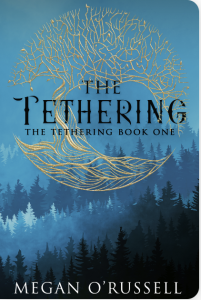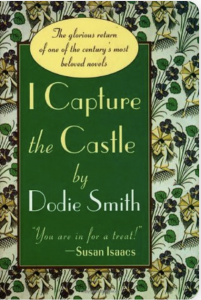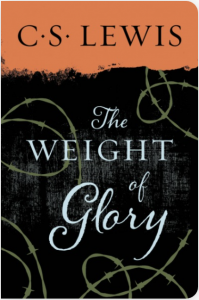C.A. Gray's Blog, page 25
October 21, 2022
Review of The Tethering

I loved this! A terrific blend of romance, great characterization, and fantasy a la Harry Potter (at least insofar as there are witches, wizards, wands, and spells in Latin, though I suppose to be fair, those things existed in literature long before Harry Potter.)
The intro was such a clever way to encapsulate years of a relationship, and hooked me immediately. In short chapters with only a paragraph or a few paragraphs each, O’Russell covered years of Jacob’s and Emilia’s childhood, showing (rather than telling) exactly why he fell in love with her when she was kind to him at school. Then she disappeared.
The rest goes very quickly, too. In a moment of tragedy, like so many other archetypical wizards, Jacob accidentally releases his power, and finds himself whisked into the magical world, where he is reunited with Emilia. It’s been four years since she vanished from his life. Unfortunately, now she has a boyfriend who is basically the Draco Malfoy character (though for a better reason: he knows Jacob is a rival for Emilia). Meanwhile, rival wizards (basically the Death Eaters) seek to rule not only the magical world, but humans too. They’re tired of hiding in the shadows, and want to come out into the open, even if it means war.
I guess there was really a lot of overlap with Harry Potter, but I didn’t mind–I miss Harry Potter, and the characters, relationships, and dynamics are so very different in this story that it still felt fresh. I immediately downloaded the next one!
My rating: *****
Language: none
Sexual content: none
Violence: there’s some torture towards the end. It could be more gratuitous than it was
Woke content: none
The post Review of The Tethering appeared first on C.A. Gray.
October 14, 2022
Review of The Unseen Heir

This was so satisfying, in a guilty pleasure kind of a way… though I can’t quite say what was guilty about it. Like all of Kenley Davidson’s books, it’s totally clean, so it’s not that… it’s a romance cloaked in a fantasy adventure, which is my favorite kind of romance.
The Faceless Mage ended on a cliffhanger: Leisa had fled from the kingdom of Garimore and the Raven was compelled to pursue her. She managed to use her power to free him from his spell of bondage, unshackling him almost entirely and unmasking him so that she saw that he was a (terribly gorgeous) night elf named Kyrion–one of the most terrifying magical creatures in their world. He needs Leisa to free his magic, which is the last thing that remains bound, but she’s too weak to do it at the moment, as it drains her. She also has information that her king of Farhall needs, that Garimore intends to attack them. Because Kyrion believes humans are prejudiced against night elves, he doesn’t go with her, but fears that she won’t return because he’s been betrayed so many times before. Unfortunately, Leisa’s king fears her knowledge and imprisons her. Kyrion still has a magical bond to her, and senses that she is in distress, so he goes after her.
I’m not entirely clear on all the reasons why the various people chase Kyrion and Leisa as they flee, but the tension and heightened emotions make clear to each their feelings for the other. There’s a lot of, “Oh no, is he dead? Is she dead? I would die for him/her!” But even though the scenarios were clearly contrived to evoke these thoughts and emotions, it was so well done that I still enjoyed it. They end up in Kyrion’s land, where his absence for the previous 10 yrs perpetuated political turmoil. The night elves also hate humans, so Leisa has to be protected too–until she learns that again, Farhall is under imminent attack, and she is convinced that not only is she the only one that can save them, but also that her presence in Kyrion’s land will never be accepted. We think the star-crossed lovers who have only just admitted their feelings for one another will never be together, as they return to their respective battles…
The action is nonstop, and yet it all seems almost like a prop for the relationship. I don’t mind that a bit, though. The story was the perfect balance between romance, action, and fantasy, very well paced, and just gushy enough without crossing the line into eye-rolling. Also, I was relieved to find it was a duology and not a trilogy or longer, even though I got the impression from the epilogue that two secondary characters will become primary in subsequent books in the series.
My rating: *****
Language: none
Sexual content: none
Violence: none (fantasy only)
Woke content: none
The post Review of The Unseen Heir appeared first on C.A. Gray.
The Faceless Mage, Kenley Davidson
Today’s podcast review comes from this blog review of The Faceless Mage.
The post The Faceless Mage, Kenley Davidson appeared first on C.A. Gray.
October 7, 2022
The Weight of Glory, C.S. Lewis
Today’s podcast review comes from this blog review of The Weight of Glory.
The post The Weight of Glory, C.S. Lewis appeared first on C.A. Gray.
October 3, 2022
Review of I Capture the Castle

I’m almost positive I’d read this book once before, only because vague snippets came back to my remembrance as I listened, and also because it popped up in my audio library… and yet, somehow, I recalled almost none of it. This was a surprise, considering it’s exactly the type of story that should be one of my all-time favorites: set in a simpler time (though I’m unclear whether it was the 1920s-1940s… somewhere in there, I suppose, maybe I just didn’t listen closely enough) and episodic, in the style of Anne of Green Gables or Little Women. But, like Little Women, I guess it didn’t make it into the “cannon” of my favorites because the ending was so dissatisfying.
The narrator, Cassandra, is very engaging (as JK Rowling’s review noted). She’s somewhere in her early to mid-teen years, in that coming-of-age period, and she still looks like a child for the most part. She has an unusual family situation: her mother died some years earlier, but before her death, her brilliant yet apparently volatile father threatened her mother’s life and was sent to prison for it. Cassandra notes that nobody really thought her father meant it except a neighbor who overheard the threat, and was the one who turned him in. Her father was a “one-hit wonder” in the literary world before this episode, having written an apparently esoteric novel called “Jacob’s Ladder” that was later studied in universities around the globe–and yet, he’s never been able to write anything else. Because of this, the family is destitute. They moved into a dilapidated castle in England which Cassandra manages to find it romantic, but her beautiful and mercenary older sister Rose despises her poverty and is willing to sell herself into a loveless marriage to get out of it, provided her groom-to-be is wealthy. Other quirks of the family life include a servant named Steven, whom they took in when his mother died when he was a child. Cassandra, nearly his age, was kind to him, and he’s been in love with her ever since. Also, after Cassandra and Rose’s mother died (and they also have a brother named Thomas, who rarely enters the story), their father, Mortmain, remarried a young model named Topaz who doesn’t fit the role of the stepmother at all. Rose hates her, but Cassandra and Topaz are close.
Enter Simon and Neil, American brothers who happen to be their landlords. Simon is the elder, more serious brother–and because he’s the heir, Rose immediately fixates on him as her “target” for marriage. She makes herself ridiculous trying to win him over, even though she doesn’t care for him at all. Neil sees through her act and despises her for it, but eventually Simon is completely taken in. Both brothers regard Cassandra as a child–until one day, for reasons that probably only make sense within the culture of the day, Simon kisses Cassandra (apparently in a brotherly way, in his mind? Though it was on the lips) and Cassandra immediately falls head over heels in love with him–after he’s already engaged to her sister. Steven, meanwhile, pursues Cassandra with great kindness. Initially she’s a bit confused over her feelings for him, but once Simon kisses her, it’s all over. In the background of all this, Topaz and the rest of them attempt to coax and bully and coerce Mortmain into writing again, and his fragile ego can barely stand the onslaught.
The ending, as I said, was just all wrong. Based on the bent of the narrator, it was the only thing it could possibly be, but I feel like she should have had more of her own character arc so that something else could have been possible, rather than just a single-minded obsession. Nearly everyone ends up miserable, and those who don’t aren’t exactly admirable for the way they went about achieving their desires. The last line has an almost unfinished quality to it. Just thoroughly unsatisfying. No wonder I didn’t remember it.
My rating: ***1/2
Language: none
Sexual content: none
Violence: none
Political content: none
The post Review of I Capture the Castle appeared first on C.A. Gray.
September 30, 2022
Winnie-The-Pooh, by A.A. Milne
Today’s podcast review comes from this blog review of the Complete Tales & Poems of Winnie-the-Pooh.
The post Winnie-The-Pooh, by A.A. Milne appeared first on C.A. Gray.
September 27, 2022
Review of The Faceless Mage

I love Kenley Davidson’s books. I can always count on them to be clean, semi-lighthearted action–it’s all intended to be serious, but not so gripping that I can’t go to sleep afterwards, so they’re great to wind down at the end of the night.
This story was very unique for the genre, I think: Leisa is the bodyguard to the princess Evaraine of the kingdom of Garimore. She was an orphan, rescued by Garimore’s king and raised in his household, so Leisa thinks of him as a father, the only one she’s ever really known. But she’s not only a bodyguard, but also a mirror mage, capable of shifting her appearance to look like that of someone else. So when the sickly and weak Evaraine receives an offer of marriage from a neighboring and much stronger kingdom’s prince, King Soren of Garimore sends Leisa in Evaraine’s place, wearing Evaraine’s face. He mistrusts the alliance and wants Leisa to spy and find out whether this is a good or a bad match.
That’s about all we need to know for the majority of the story. Once Leisa arrives, her betrothed gives her a stone to wear as a betrothal gift, which she immediately recognizes as a magicked item as soon as she puts it on. She finds out that it links her to The Raven, their king’s personal bodyguard. He is like a specter–always in armor, never speaks or even breathes loudly enough to be heard, moves silently and faster than should be possible, and apparently doesn’t sleep. Leisa also comes to wonder how such a powerful being (as she can tell through their bond that he is very powerful) came to be enslaved in such a horrific way. In time, through their bond she learns to communicate with him. He figures out that she isn’t who she pretends to be. Meanwhile, she learns that the alliance is essentially a trap, looking for an excuse to provoke war. And she fears that the Raven will be forced to blow her cover to the king, compelled to do the king’s bidding as he is–or worse, that he will be compelled to kill her.
The most unbelievable (and also slowest) part of the story was the budding relationship between Leisa and the Raven, though it was kind of the crux of the story too. It was hard to develop that relationship considering they couldn’t talk even in their minds for the first 3/4 of the story, so the entire thing had to occur in each of their minds and through their interaction. I kept wondering how in the world she would wrap the relationship up with the little bit of the story that was left, and then I saw that it was the first of a series. I immediately went out and downloaded the next one.
My rating: ****
Language: none
Sexual content: none
Violence: none
Woke content: none
The post Review of The Faceless Mage appeared first on C.A. Gray.
September 23, 2022
The Three Musketeers, Alexandre Dumas
Today’s podcast comes from this blog review of The Three Musketeers.
The post The Three Musketeers, Alexandre Dumas appeared first on C.A. Gray.
September 22, 2022
Review of The Weight of Glory

Absolutely brilliant, like all of C.S. Lewis’s non-fiction. He is, hands-down, my favorite modern philosopher. He had this incredibly precise way of thinking, combined with an excellent command of language, such that he could nail down precise definitions and make distinctions that would seem fuzzy to most people. His analogies are both perfect and humorous when appropriate, with his classic British wit. I almost feel like I know him when I read his prose, like he must have been incredibly likable too–which is itself quite unusual in one so clearly brilliant.
This collection of essays are grouped together in no particular order that I can tell. They were written in response to specific questions regarding Christianity asked to him by readers and listeners. The first one is the best, I think: he writes the best explanation I’ve ever heard of how the heavenly realm likely corresponds to that of earth, as a place more real than this one, almost the template of this one (as the writer of Hebrews implies). He dramatizes this concept at the end of “The Last Battle,” too. I’ve recently started watching a PBS YouTube series on the emerging scientific theory that our universe is “holographic,” in a sense a projection from a deeper reality. I immediately thought of Lewis’s description here. The same essay also touches on such esoteric concepts as the nature of beauty (what it is about it that draws and compels us) and others address our desires as God’s means of wooing us to Himself, and why he was not a pacifist (during the time of the second World War), among other topics. I feel I need to reread more of Lewis’s other nonfiction now.
My rating: *****
Language: none
Sexual content: none
Political content: none
Violence: none
The post Review of The Weight of Glory appeared first on C.A. Gray.
September 16, 2022
Jo & Laurie, Melissa de la Cruz and Margaret Stohl
Today’s podcast comes from this blog review of Jo & Laurie.
The post Jo & Laurie, Melissa de la Cruz and Margaret Stohl appeared first on C.A. Gray.



